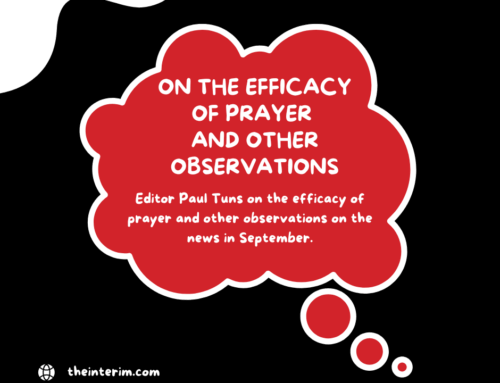A conservative Catholic journalist has expressed reservations about the image of the late Cardinal Joseph Bernardin of Chicago as a champion of unborn children.
In an essay in the Catholic World Report magazine (February, 1997), James Hitchcock reflected on the cardinal’s popularity with liberal elements, and on his ability to mask his support for dissenting voices within the church.
While praising the courage and dignity with which Cardinal Bernardin faced death, and his deathbed letter opposing legalization of assisted suicide, Hitchcock said the cardinal showed a pattern of making ambiguous statements in support of liberal/progressive causes, including a relaxed attitude towards abortion. When challenged on these issues, Cardinal Bernardin would claim to have been misquoted or misunderstood.
This pattern would have a significant impact on the pro-life movement in the United States. “In 1982, the pro-life movement in America had reached the peak of its political influence,” Hitchcock writes, “bringing about the defeat of a number of prominent pro-abortion politicians…. Shortly after the (1982) election, Bernardin began a series of highly publicized speeches around the country in which he called for a ‘consistent ethic of life,’ using the image of the ‘seamless garment’, the point of which was that Catholics cannot be ‘single issue’ voters but must evaluate candidates on a range of issues.”
In theory, Hitchcock continued, this meant that Catholics should support politicians who oppose abortion, but are also opposed to capital punishment and military build-up, and who support the welfare state. Hitchcock says this approach led many Catholic voters to weigh the abortion issue against other life-related issues in making a balanced evaluation of candidates. This resulted in many voters disregarding abortion and supporting liberal candidates for other reasons.
“The eventual result was a measurable weakening of the political effectiveness of the pro-life movement, which is probably what Barnardin intended, so that in the weeks before his death, polls showed that Catholics had in effect provided the margin of victory for President Bill Clinton’s re-election, despite (the president’s) fanatically pro-abortion stance.”
Hitchcock also suggests the cardinal’s efforts led to Evangelical Christians replacing Catholics as leaders of the pro-life cause – “a result Bernardin intended since it gave the bishops relief from intense liberal opprobrium”
Other inconsistencies noted by Hitchcock included Bernardin’s friendship with the staunchly pro-choice advice columnist Ann Landers, and an expressed admiration for First Lady Hilary Clinton who made no secret of her strong views favoring abortion. The author says this latter friendship renders suspicious President Clinton’s awarding Bernardin the prestigious Medal of Freedom award.
Hitchcock says the story of the Indiana abortionist who gave up the practice after being inspired by Bernardin’s pro-life efforts is questionable at best. “The abortionist in question had no personal contact with the late cardinal,” Hitchcock writes. “There is no evidence that Bernardin every tried to persuade Ann Landers or anyone else that her views on abortion were in error. Indeed he seemed to thrive on warm friendships with people like Landers, while remaining aloof from people active, for example, in pro-life work.”
Hitchcock’s argument that Cardinal Bernardin was largely responsible for the leadership of the pro-life movement in the U.S. passing into evangelical hands might not sit well with New York’s Cardinal John O’Connor and other bishops who led a vigorous opposition to President Clinton’s veto of the partial-birth abortion ban last year. Nonetheless it reflects the feelings of some pro-lifers who have criticized certain Catholic bishops for not showing strong enough leadership in the face of the abortion/contraception mentality.




